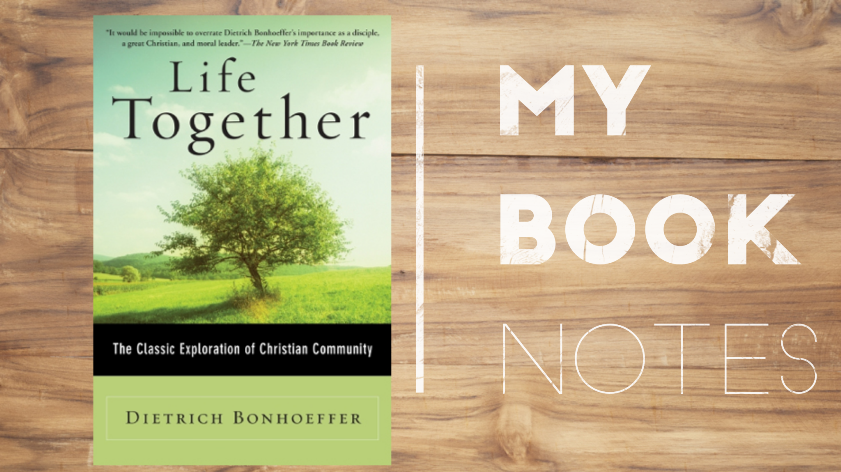What Proverbs and Ecclesiastes Have To Say About The Self Help Movement
It came off the back of reading “The Seven Habits of Highly Effective People”* and realising all the good things that it said.
I read many of the greats: Dale Carnegie, James Allan, Chip & Dan Heath, Malcolm Gladwell, David Schwartz, Jen Sincero.*
I took on board what they said.
It was the year that I was going to be fitter, healthier,
and more productive than any time
previously.
I was going to get up early.
I was going to exercise every day and be healthy.
I was going to utilise every productivity hack available and
build the life I dreamed of.
I started off really well.
I was doing all of the above.
Then in early spring,
I got Tonsilitis.
Then after that, I got
another sickness. And another.
Then after that, I
started to develop a pain in my foot.
Then after that, I was
moved from the job that I loved.
Then after that, I
developed a terrible virus that wiped out my energy for months.
Then, due to my illnesses,
the church that I pastored was closed down.
Then I was diagnosed with early-onset osteoarthritis.
The day I was diagnosed I got a sickness bug and spent that
night and next day throwing up.
No amount of positive thinking, productivity hacks or
self-help made a difference.
What The Book of Proverbs Has To Say About The Self-help
Movement
Exercising regularly? Yep, that’s great for you.
Eating healthily? Yep, that’s also great.
Thinking positively? That’s really helpful.
Creating good habits in your life? Also really good.
I appreciate a lot of what the self-help movement says.
(There is also a lot of rubbish in the self-help movement. Try telling starving people
in the midst of a famine that if they want something badly enough, and ask “the
universe” for it, that “the universe” will gift it to them.)
The book of Proverbs in the Bible reads a lot like a
self-help book.
It is full of practical wisdom.
The book of Proverbs
claims:
“Whoever listens to me [wisdom] will live in safety and be
at ease, without fear of harm” (Prov 1:33).
It states that God “holds success in store for the upright”
(Prov 2:7).
It says that listening to wisdom “will prolong your life
many years and bring you peace and prosperity” (Prov 3:1-2).
In other words, Proverbs claims that by following wisdom you will receive health,
wealth, and a long life.
The exact claims that the self-help
movement make.
And indeed they are right.
As mentioned earlier, the things that Proverbs and the self-help movement tell us to do are really good things.
As mentioned earlier, the things that Proverbs and the self-help movement tell us to do are really good things.
They certainly make it more likely that we will receive good
things (if that is what we want).
We are told, “do this
and you will have a good life”.
But what happens when we follow this advice and things still
go terribly wrong?
This is where Ecclesiastes comes in.
What Ecclesiastes Has To Say About The Self Help Movement
The book of Ecclesiastes is another book in the Bible and
stands alongside Proverbs in the category of “Wisdom Literature”.
The opening words of Ecclesiastes speak volumes:
“Meaningless! Meaningless!... Everything is meaningless”
(Ecc 1:2)
The teacher then goes on to say that with wisdom comes much
sorrow, with more knowledge, comes more
grief (Ecc 1:18).
This theme culminates in Ecclesiastes 9:11
“I have seen something else under the sun: The race is not to the swift or the battle to the strong, nor does food come to the wise or wealth to the brilliant or favour to the learned; but time and chance happen to them all.”
The book of Ecclesiastes stands in direct contrast to the wisdom offered in Proverbs.
It stands as a counterbalance.
When Proverbs claims “do these things and you will have a
good life”, Ecclesiastes says “but there are no guarantees, nothing is
certain.”
Conclusion
The self-help movement
needs an Ecclesiastes.
It needs something that clearly states that all the healthy eating, exercise, productivity and
positive thinking doesn’t necessarily lead to a better life.
It needs something that says that you can do all these
things and still have everything go wrong, and that’s life.
The wisdom of Ecclesiastes is to acknowledge that everything
we have is a gift. It is the gratitude of what is in our hands at that moment,
and our relationship with God that makes
a life worth living.
May we acknowledge the dual wisdom of Proverbs and Ecclesiastes. May we learn to hold
both of them with open hands. And may walk with grateful hearts into whatever
the future holds.
If you would like to look into the wisdom literature in more
detail then I highly recommend this video series by the Bible Project.
*Please note that any book links in this article are affiliate links*.

*Please note that any book links in this article are affiliate links*.







Comments
Post a Comment